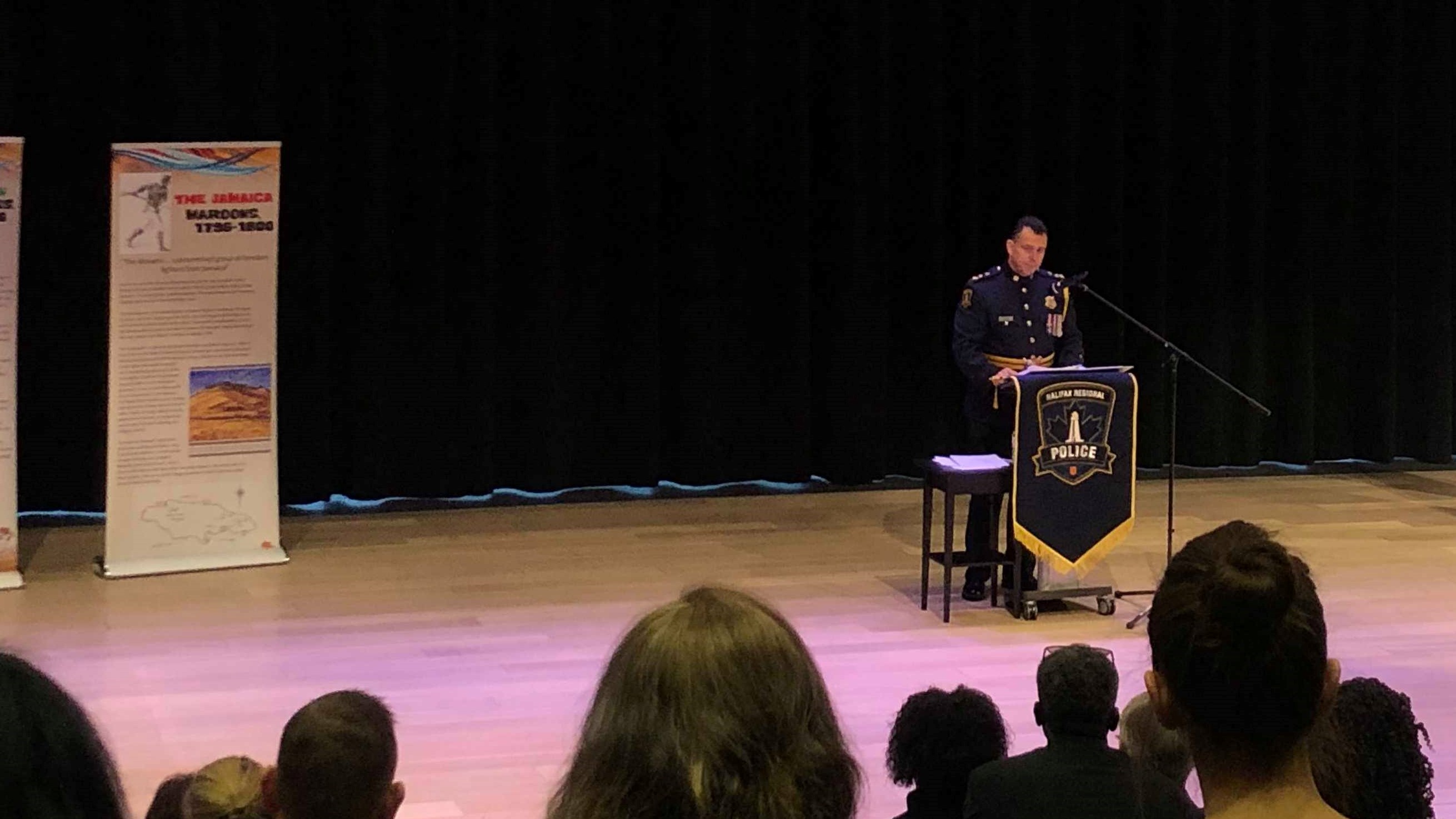Police street check apology leaves African Nova Scotians wanting more
Halifax police developing action plan, chief says ‘change will take time’

caption
Police Chief Dan Kinsella gives his apology at the Halifax Central Library.The apology from local police regarding street checks has been several months in the making. Now it’s happened, and poet and activist El Jones remains unsatisfied.
“What we got is a whole lot of the police chief feeling sad, and not the actual substance of the kind of policy changes we’re going to see,” she said.
Street checks are a controversial police practice of interacting with or observing someone, and entering identifying information into the records management system.
In the apology, Halifax police Chief Dan Kinsella said Halifax Regional Police (HRP) plans to establish an advisory committee, create a “Know Your Rights” campaign, train officers on African Nova Scotian history, recruit African Nova Scotians, and create programs targeted towards black youth. Related stories
“Change will take time,” Kinsella said Friday to an audience at the Halifax Central Library. “I recognize that there will be setbacks along the way, but it is time to take leadership on this important issue. We will do it. We will do it here in Halifax.”
Jones, who was invited to the event, was disappointed by Kinsella’s apology.
“Literally nothing was said,” Jones said. “All we’re hearing is more consultation.”
She said there was no mention of police data, which the community requested, as well as HRP’s traffic stop policies. Many in the community, she said, are concerned that statistics for traffic stops are worse than those of street checks.
The Wortley report, released in March, found the street check rate for black men was seven times higher than for white men. Black women were also subject to a higher rate of street checks than white men.
In April, the board of police commissioners approved a motion to acknowledge and apologize for the way street checks disproportionately affect African Nova Scotians.
Nova Scotia Justice Minister Mark Furey suspended street checks in April. He officially deemed them illegal on Oct. 28.
Community response
Robert Wright, a prominent Halifax social worker, says the apology is largely symbolic. He was in the audience for Kinsella’s 12-minute address to the community.
“We have to think about things like generational trauma. People of African descent carry their own,” he said.
Wright said no apology could ever undo the harm caused to the African Nova Scotian community, but it would have been nice to see specific changes of policies and practices laid out during Kinsella’s speech.

caption
Quentrel Provo, who was in the audience at the apology.Quentrel Provo, a Halifax anti-violence activist, said hearing the apology was an emotional moment for him.
“Being someone that has been racially profiled, and has dealt with it over the years, it brought up a lot of memories,” he said.
Provo says the community has to be open to forgiveness, but the police have to be held accountable. He won’t be satisfied until he sees action.
“This was a historic moment, but this apology isn’t it,” he said.
On Thursday, the Decade for People of African Descent released a statement expressing their concerns for the planned apology. The organization said an apology is a “first step” toward reconciliation, but concrete action must be taken before they consider it to be meaningful.
“If there is no traction on the solutions, and no good faith engagement, the issue is not whether or not the apology was accepted but whether or not the apology was real,” the statement said.
About the author
Kristin Gardiner
Kristin is a Prince Edward Islander currently working in Halifax. Her journalistic interests lie in copy editing and longform features.
Karla Renic
Karla Renic is a multimedia journalist in her fourth year at the University of King's College. She freelances and works as the news editor at...
